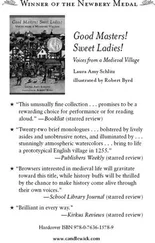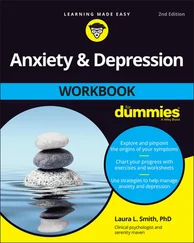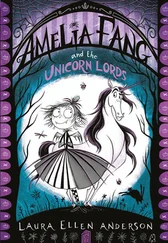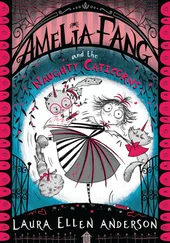Laura Schlitz - Splendors and Glooms
Здесь есть возможность читать онлайн «Laura Schlitz - Splendors and Glooms» весь текст электронной книги совершенно бесплатно (целиком полную версию без сокращений). В некоторых случаях можно слушать аудио, скачать через торрент в формате fb2 и присутствует краткое содержание. Год выпуска: 2012, ISBN: 2012, Издательство: Candlewick Press, Жанр: Старинная литература, на английском языке. Описание произведения, (предисловие) а так же отзывы посетителей доступны на портале библиотеки ЛибКат.
- Название:Splendors and Glooms
- Автор:
- Издательство:Candlewick Press
- Жанр:
- Год:2012
- ISBN:978-0-7636-6246-2
- Рейтинг книги:5 / 5. Голосов: 1
-
Избранное:Добавить в избранное
- Отзывы:
-
Ваша оценка:
- 100
- 1
- 2
- 3
- 4
- 5
Splendors and Glooms: краткое содержание, описание и аннотация
Предлагаем к чтению аннотацию, описание, краткое содержание или предисловие (зависит от того, что написал сам автор книги «Splendors and Glooms»). Если вы не нашли необходимую информацию о книге — напишите в комментариях, мы постараемся отыскать её.
Splendors and Glooms — читать онлайн бесплатно полную книгу (весь текст) целиком
Ниже представлен текст книги, разбитый по страницам. Система сохранения места последней прочитанной страницы, позволяет с удобством читать онлайн бесплатно книгу «Splendors and Glooms», без необходимости каждый раз заново искать на чём Вы остановились. Поставьте закладку, и сможете в любой момент перейти на страницу, на которой закончили чтение.
Интервал:
Закладка:
In the gin palace of the Juniper Bough, Grisini swayed and set down his glass. A red mist glowed around him; his skin prickled and felt hot, as if he stood before the mouth of a great furnace. Then the sensation passed.
He reached for his glass of gin. He had drunk scarcely a tablespoon, knowing that he must keep his wits about him. Now he took a large swallow, fixing his eyes on the clock across the room. It had stopped an hour and a half ago, as he had reason to know: he had tampered with the pendulum. If policemen came tomorrow and asked the landlady of the Juniper Bough what time he came or left, she would be unable to answer them.
He reached in his pocket and took out the automaton watch. It was almost nine o’clock, and he wanted to see the hour strike. He cherished a childish fancy that someday the machinery might jam so that the wolf could capture its prey. He imagined the tiny jaws tearing at the swan’s feathers; he pictured drops of ruby-bright blood, smaller than grains of sand. He even wondered if such a drama could be engineered, if in all of London there were a clock maker who could alter the works so that the wolf might bite the swan.
He returned the watch to his pocket, reviewing his plans. In another quarter of an hour, he would head back to his lodgings at Mrs. Pinchbeck’s. There he would assume the disguise he had contrived and take a hackney coach westward, toward the cemetery at Kensal Green.
He congratulated himself on the excellence of his plan. He had chosen his victim well. Dr. Wintermute could be relied upon to pay Clara’s ransom; a man who had lost four children would stop at nothing to rescue the fifth. Not until the following morning would the doctor understand that his daughter was never coming home. It tickled Grisini to think that he had forced Dr. Wintermute to spend the night in the cemetery where his children had been buried. It was a masterstroke, the kind of inspired touch that made Grisini an artist in crime.
He thought hungrily of the ransom money. Ten thousand pounds. Enough money to leave London and live abroad in luxury. Grisini tilted the glass so that the last drop of gin fell on his tongue. He missed Venice but dared not return there. The Venetian police bore him a grudge; so did the authorities of Austria and Spain. He had no wish to return to France, where he had been imprisoned for fourteen years. After weighing the remaining choices, he had booked passage on a ship to Madeira. He wanted the sun. He hated the northern winters, and he was sick to death of fog.
A wave of intense heat broke over him. He swayed, clinging to the counter for balance. One hand came up to his face, tracing a pattern of old scars: furrows where a woman had raked him with her claws. It had happened thirty-eight years ago, in Venice. He had nearly lost an eye.
The scar tissue tingled, but his cheeks were dry. The old wounds had not reopened. He blinked, and the red fog around him cleared.
He raised the empty glass to his lips. His hand was shaking. Why should Cassandra Sagredo summon him after so many years? The thing was unlikely, impossible. Why now, when he was happy in his thoughts, envisioning Madeira and ten thousand pounds?
He set down the empty glass and left the Juniper Bough. After the frowst of the gin palace, the cold of the streets was piercing. It seemed to Grisini that the fog had crept into his bones. He was not well. In the past months, he had been troubled by a hoarse cough and restless nights. He was afraid his lungs were not strong.
He was also deeply bored. Even the puppet theatre failed to amuse him. He was willing to abandon it, and eager to be rid of the two children who worked for him. He knew he would never find a boy who suited him better than Parsefall did — the boy’s hands were wonderfully deft — but he found he didn’t care. He looked forward to a life of idleness, with servants to attend him instead of children.
“Gaspare! Gaspare Grisini!”
He stopped in the middle of the street. It was as if Cassandra had thrown a noose around his neck and yanked it tight. He felt her presence. He even smelled the scent she used to wear: a nauseous blend of myrrh and musk roses.
“Gaspare! I want you!”
He spun like the needle of a compass. If he did not obey her, she could make him bleed. He recalled the night they had parted, when she clawed his face and laid her curse on him. The blood had streamed from him, ounce after precious ounce, pint after pint, not clotting, but flowing in eight crimson streams.
“You come, Gaspare! I summon you!”
He lurched forward as if she had released the halter around his throat. As he stumbled through the streets, pictures swam into his mind. He must go north. He would have to go to a railway station, and he knew which one; in his mind’s eye, he saw the great arches and tunnels of King’s Cross. He glimpsed his destination: a landscape of dark fells and silver lakes. A castle of red sandstone rose before him.
He heard footsteps. He imagined Cassandra tracking him, like Hecate with her pack of hounds, and he panicked. He spied a narrow alley to the left of him and ducked into it, wrapping his arms around his chest as if he could squeeze himself into invisibility. He realized that he was panting and shut his mouth to muffle the sound.
The footsteps passed.
Grisini stifled a gasp of relief. Once again, he touched his cheeks, making sure that the wounds had not opened. All at once he recalled his appointment with Dr. Wintermute, and the ten thousand pounds he was about to lose. Ten thousand pounds! He could have screamed with frustration. Why must Cassandra summon him now? Another night — just one — and he would have ten thousand pounds —
His fingers curled into fists. If he could disobey her — for three hours, three little hours, just long enough to collect Clara’s ransom . . . In the old days, it would not have been possible. But the witch had grown older; the power of her summons was not as strong as it had once been. Perhaps he could manage it.
He felt his pulses quicken. He had always been a gambler, and though his heart raced with fear, the situation was not without its savor. He turned his footsteps homeward and doubled his pace. He was so intent on his purpose that he was nearly home before he saw the man who followed him through the streets.
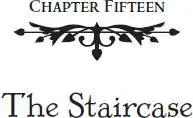
Parsefall was rehearsing. He was trying to learn the dance of the ballerina puppet, which Grisini had refused to teach him. Grisini was fond of taunting his apprentice; he was willing to admit that Parsefall had mastered the skeleton dance, but the ballet was more difficult, requiring the finesse of a true artist. The insult ate deep into Parsefall’s soul. Whenever Grisini set off for the Juniper Bough, Parsefall took the dancer from her muslin bag and practiced. He was determined to prove Grisini wrong.
He propped a mirror against the side of Lizzie Rose’s bedroom, positioning it so that he could watch the puppet’s movements. He would have liked to practice close to the fire, but Lizzie Rose had laid claim to that territory. She had hauled a basin of water upstairs and was heating a kettle on the hob. Parsefall rolled his eyes at her. Lizzie Rose’s propensity for washing things struck him as insane. He was glad he knew better than to waste time like that.
He stood on a chair — he was shorter than Grisini, and the puppet’s strings were too long for him. He lifted the perch of the little dancer, and she swung like a child on a swing. He waited patiently until she was still. Then he pulled the hand string. The ballerina raised her arms.
Читать дальшеИнтервал:
Закладка:
Похожие книги на «Splendors and Glooms»
Представляем Вашему вниманию похожие книги на «Splendors and Glooms» списком для выбора. Мы отобрали схожую по названию и смыслу литературу в надежде предоставить читателям больше вариантов отыскать новые, интересные, ещё непрочитанные произведения.
Обсуждение, отзывы о книге «Splendors and Glooms» и просто собственные мнения читателей. Оставьте ваши комментарии, напишите, что Вы думаете о произведении, его смысле или главных героях. Укажите что конкретно понравилось, а что нет, и почему Вы так считаете.


